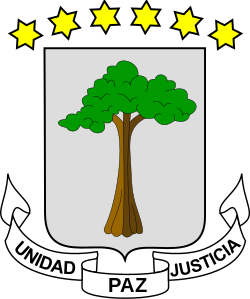Parliament of Equatorial Guinea Parlamento de Guinea Ecuatorial Parlement de Guinée équatoriale Parlamento da Guiné Equatorial | |
|---|---|
 | |
| Type | |
| Type | |
| Houses | Senate (upper house) Chamber of Deputies (lower house) |
| History | |
| Founded | 2012 |
| Leadership | |
President of Senate | |
President of Chamber of Deputies | |
Deputy Presidents | Ernesto Obiang Nchama Ekong Javier Mbong Oyono Nguema Alejandro Yengue Mba Esono Rosario Efa Nze Mbou since 12 July 2023 |
| Structure | |
| Seats | 155
|
 | |
Senate political groups | Government (55) |
 | |
Chamber of Deputies political groups | Government (100) |
| Elections | |
Senate voting system | Party-list proportional representation |
Chamber of Deputies voting system | Party-list proportional representation |
Last Senate election | 20 November 2022 |
Last Chamber of Deputies election | 20 November 2022 |
| Meeting place | |
| Malabo | |
 |
|---|
The Parliament is the national legislature of Equatorial Guinea. The bicameral parliament consists of a Senate and the Chamber of Deputies.

